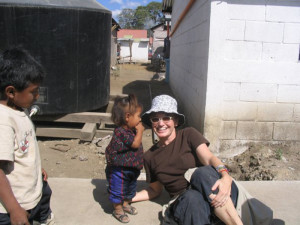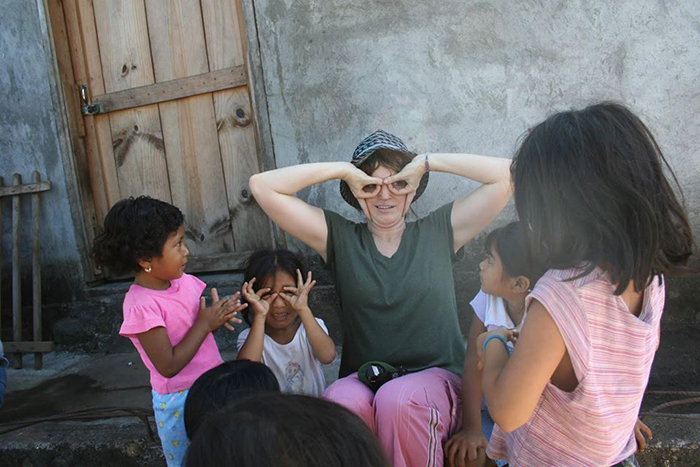Katherine Rowell, Ph.D
Why She’s Interesting…
Kathy Rowell was born in Elizabethtown Kentucky, a year and a day after her parents’ wedding anniversary.
“They call me their anniversary present,” said Rowell. “My parents’ home was across the street from where Abraham Lincoln was born.”
At around 2 years old, Rowell’s family picked up and moved to the Dayton area. Half her family moved around the Dayton area while the other half remained in Eastern Kentucky in the Appalachians.
“My grandfather on my dad’s side couldn’t read or write… and he was very important to me,” said Rowell. “He always said he was so proud of me that I could read and write, he used to cry about it—when I would read to him, just the fact that I could read.”
Rowell said that her grandfather would remind her that she would amount to something. Reflecting upon this, she said that she misses him greatly. Rowell elaborated that her grandfather undoubtedly inspired her to continue with her education.
 She also explained that her parents pushed her to get an education emphasizing its importance in the job market. Rowell received her B.A in Political Science and M.A in Applied Behavioral Sciences at Wright State University. She later received her Doctorate at Ohio State University.
She also explained that her parents pushed her to get an education emphasizing its importance in the job market. Rowell received her B.A in Political Science and M.A in Applied Behavioral Sciences at Wright State University. She later received her Doctorate at Ohio State University.
Rowell’s master’s thesis was on poverty and was called “Suburban Homelessness.” She has conducted fair amounts of research including if welfare helps or hinders the poor. Rowell has also volunteered and given aid to many organizations that help with the homeless and those experiencing poverty. Rowell teaches sociology, cultural anthropology, and now a world poverty class here at Sinclair.
“I could’ve taught at other schools, right? I actually expected to be at a university,” said Rowell.
So, why Sinclair? “—When I came to Sinclair [in 1996], I realized there’s people here from all walks of life and they’ve experienced and understand discrimination a little better [than other college students], and since they’ve experienced that, the content is easier for them to understand,” said Rowell. “So when I came here to teach I said, ‘Yes, this is the place,’ and I’ve been here ever since.”
Rowell said many Sinclair students she meets face the same difficulties she faced in college including being a first generation college student as well as experiencing financial difficulties. Rowell said she wouldn’t have continued with her college education unless she had received scholarships. She received enough to have all her classes paid for.
“But let me tell you something, even though I had scholarships, it was no walk in the park,” said Rowell. “I married at 19, had two sons, worked a couple jobs all while going to college. It was rough.”
Rowell said even with the difficulties, she truly cherishes finishing her education. Along her studies, Rowell said an important tool to fighting poverty is education, for many reasons.
“—I think with teaching, it is a form of reducing poverty,” Rowell said. Her closing comments was that she hopes that with a class like Global Poverty, she can help her students to help others. Teaching students to possibly teach others about the ramifications poverty has on our world.
And maybe there, when people begin to learn to care for others, they can change the world. There are multiple charities in Dayton, Ohio that aim to help those in need; among them include Home Full, St. Vincent, Daybreak, and the Dayton International Peace Museum. Anyone interested in getting involved with charity work should investigate further to see if it’s the fit for them.
Ehron Ostendorf
Copy Editor


